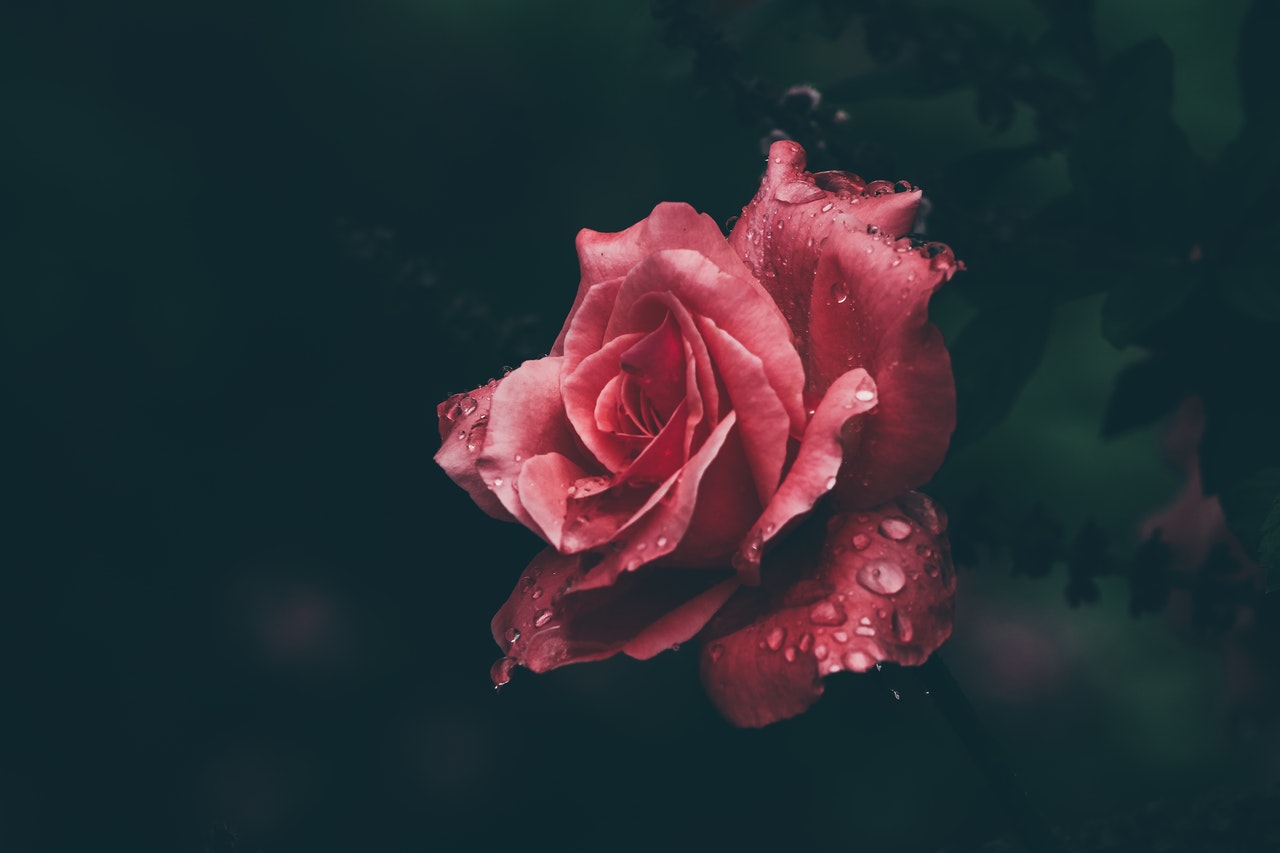There’s a sense in which the intensely personal story of your relationship with Graham Greene stands-in for the kind of imagined, yet powerful, connection we all feel to certain authors, artists or musicians, but perhaps rarely articulate. What made you want to share your own story?
Exactly! I tried very hard to make this book not my story, but almost an archetypal tale of any one of us; thus, I don’t write about my actual father very much, but rather about that allegorical pattern we all know whereby we rebel against our parents, most of us, until we become them. We long to be anything other than our fathers—that’s the point of life, we think—and then we look into the mirror and hear our own voices and realize we’ve turned into our fathers. In much the same way, I begin the book with a dream-like scene in Bolivia and end it with a car-crash in the Andes not because those incidents are so interesting, but because I think most of our lives begin with a near-life experience, dream-like, and conclude with a near-death experience. And at the center of my book is a series of fires encircling my house. They really happened, but they also speak for that metaphorical sense of the mystics that all life is a burning house.
My sense is that every one of us has many people in our heads—artists, singers, writers, characters from history—and each corresponds to a different side of us. Some friends of mine can barely listen to Leonard Cohen, he seems so clearly to be reading their diaries and releasing their secrets to the world; others feel, when they pick up Virginia Woof, as if she’s voicing their most private thoughts, and knows them as even their closest friends do not.
So I was interested not so much in my story here, as in these larger presences, the story we all share, but often ignore: what are these people doing in our heads, and why might I feel so haunted by Graham Greene, and not by writers I know better or love more? What does it say about my parents that I take Greene to be a kind of adopted father, an alternative parent, and why will we accept correspondences with strangers we’ve never met and run from them with our own mother and father? What can the unconscious tell us that the conscious mind would never disclose?
I suppose it’s ultimately the great promise of writing, and all art: if a writer goes deep enough into himself, it feels as if he’s reading your secrets and shadows as much as his own. And you come to know his sins, guilts and passions as you might never know those of even your siblings or parents. I really wanted to use myself as a test case, a kind of lab rat, for this syndrome, since a part of me felt we’re defined as much by our shadows as by our resumes, as much by the ghosts we carry around with us, as by the lives.
You’ve written about how inner journeys are the hardest and most revealing. And also that the habit of—if not the capacity for—reflection is being lost, even frowned upon in the world at large. What is it do you think that’s so important about self-reflection and what has it brought to your own life?
I love as much as anyone could the speed and stimulation and all-over-the-place diversity of the modern world; but I find I can only make sense of it by stepping out of it and sitting still, putting it into perspective. I’m thrilled that we all have ever more ways to communicate, travel and learn, but they only make sense if quantity doesn’t override quality. Experience is only as rich as the understanding that comes out of it.
So although I love movement, I feel it’s only as useful as the stillness that lies around it: I’ll race around Singapore, say, for three days, and then I need to go back to the quiet of my desk in Japan and be quiet in order to understand what I’ve seen and learned. I’ll take in a blast of images, experiences, stimulations, people when I visit New York and then go to a monastery to see the other side of life and to place it within a larger picture. When I was in my twenties and leading the life of my dreams as a writer for Time magazine in Midtown Manhattan, I felt I was doing justice to only one part of life, and left that dizzily exhilarating life for a temple in Kyoto, which I hoped would teach me about the other side of the equation and round out my imperfect education.
My suspicion is that the more speed we have in our lives—and it’s almost post-human now—the more something in us will cry out for slowness; the more movement we have, the more we’ll find a need for a compensating stillness. With a teenager in California handling 300,000 texts in a month, the average American spending eight-and-a-half hours every day before a screen and Internet rescue camps springing up to help the addicted, we seem to be living ever further from clarity, focus and therefore direction, almost as if we’re caught up in an accelerating roller-coaster that we never quite asked to get on and don’t know how to get off.
In the end, we need two things to lead a balanced life—a sense of the world and a sense of ourselves; it’s like breathing in and breathing out. And if you can only get to know the world by stepping out, and losing yourself in experience, you can only get to know the self by stepping back, and finding yourself in contemplation. One without the other leads to a kind of madness.
I worry that we’ll lose spaciousness, intimacy and soul if we don’t take conscious measures to unplug now and then, and make a space in our lives outside our cellphones, laptops and diversions. In the end, we’ll be sustained only by wisdom, not information, and only by inner, not external, resources. The person racing from one text to the next, from one attraction and screen and excitement to the next, finally gets lost in the flood, and swept out to sea like a fisherman in a tsunami.
For many people, yours must seem like something of a dream job: to travel where you choose and write about what you want. But what were the choices you made along the way to bring this about; were they difficult; and do you think you may have missed out on anything as a result of the transient life?
I suppose I chose freedom over belonging, concentration over ease and, to go back to the last question, inner riches over external one. These choices weren’t difficult—by my late twenties, I could see what values most deeply sustained me and what graces would never be mine—and I never regret them, but they speak to my own peculiarities, and I wouldn’t wish them on anyone else!
So, at 55 now, the age when many of my friends are retiring, I can afford to live only in a tiny, two-room rented apartment in rural Japan—as when I was a student—and I have to hustle every day for new jobs and assignments; if I were to fall ill for a month, the amount of money coming in (to help me support my 81-year-old mother, my wife and my two kids) would be exactly $0. I have to work every day of the year, including Christmas and New Year’s and my birthday, and, as soon as I’ve finished one article—I often write five to ten a week–have to turn to the next. I get no pension, I receive no health insurance and the money I get from writing a book, which may take five years of consuming work, is the same as I’d get from a few days of lectures (though, by the same token, of course, it’s infinitely more rewarding).
I’ve also found, as many of us do, that I’m a much tougher boss than any external boss would be, and to some extent, working from home, I’m never away from the office. Working in the Time magazine head offices in New York, on at least two nights a week I and my colleagues would all be there till 4am, before coming in the next day at around 9:00; yet working alone is infinitely more demanding.
I do think I’m lucky to have seen that I’d prefer a life of unsettledness to one of security, and to have been able to pursue it; I did have to give up a sense of guaranteed ease and stability and external support to pursue writing on my own (all of the above applies to any kind of writing, I think, not just writing about travel). Now, just as my friends are beginning to enjoy well-earned holidays for the rest of their lives, I’m realizing I’ll have to keep on cranking out articles in my eighties, if I last that long, and in an age when newspapers and magazines and books are all vying to be the next Titanic!
But I never regret these choices. As my wife would no doubt attest, I decided early on that I got more satisfaction from making a life than from making a living, and would be happy to work three times as hard, if, in return, I could make my own schedule and follow my own itinerary. Luck comes not in one’s circumstances, but in what one brings to them. Luck, I think Marcus Aurelius says, is “the good fortune you determine for yourself.”
Still, when I was a little boy, I dreamed sometimes of being able to live in some remote part of Japan and get to write. And here I am. It’s funny how we sometimes don’t notice how our dreams have come true, because once we’re living them, they don’t seem dreams any more, but realities we almost take for granted.
Can you share anything about how you write? If you’re truly at home in the airport departure lounge, can you write from there as well as anywhere?
No! I need absolute stillness to write, a great distance from the world and weeks and weeks on end of undistracted time. Indeed, probably no one is fussier about how he writes; I have friends who can scribble off things on planes, or in airport lounges, or at writers’ festivals, and I am hugely admiring and envious. I can’t write anything for at least seven days after getting off a plane.
Of course I could write something quick and fleeting and maybe funny in an airport departure lounge, drawing from the madness that’s unspooling around me; and when I’m really concentrating, I can write something more substantial even on a plane. But for me it’s very hard to find soul and spaciousness and real intimacy or quiet in such places. That’s why I choose to live—and to spend nearly all my life—in the middle of rural Japan, with no car or bicycle or newspapers or high-speed Internet or television I can understand.
I do feel just at much at home amidst the crowds of Terminal 1 of Changi, but that belongs to the part of my life that needs experience, stimulation, challenge and shock. To write about it all, I prefer to be in the midst of silence and months of stillness.
So I spend most of my life awakening at dawn, writing for five hours (by hand) at a child’s desk I inherited from my daughter, lavishly appointed with pictures of Hello Kitty and Brad Pitt, taking a walk around the neighborhood, reading a little, taking care of e-mails, playing ping-pong and then going to sleep by perhaps 8:30 or 9am.
Revisiting a place, and one’s younger self, is an especially powerful form of travel. In what ways does Asia—in a manner of speaking, the place where you first made your name—still retain the power to surprise or excite you?
Excitement, for me, lies in the eye of the beholder, and a place is only boring if the eye that’s brought to it is bored. To me Asia is endlessly exciting, not least because it’s constantly in motion (more than anywhere on the planet). When I return to Shanghai after only four years away, I can barely orient myself; it has altered on its surface so dramatically. Whatever I wrote about Singapore fifteen years ago would have to be modified now, and when I look around me in Japan, I respond very differently than I did when I arrived, if only becauseI am 25 years older now, and look for different things.
That said, though, I’ve always felt that places are very much like people: they may put on or lose weight, change their clothes and passions, go through different phases and moods, and yet the gleam in the eye of an 82-year-old woman is the same one would have seen when she was an eight-year-old girl. Singapore, for example, looks and feels radically different than it did fifty years ago; but if you walk around it at 3am—as I used to do when jet-lagged—you can find more and more of the cracks in the surface, the flickers in the subconscious that you’d have seen then. Whatever I found in the city when I used to stay there, in a seedy, broken-down hotel off Orchard Road in 1984, is still somewhere to be found, if only in repressed memory or intimation or half-stifled longing.
The first joy of my life in Asia has been to see so much of the continent, from Bangkok to Beijing, transform itself; the second has been to see how much of it, beneath those external changes, remains the same. It’s that blend of change and changelessness that itself becomes a source of fascination and surprise (India, for example, seems to me just as incorrigible and uncontrollable as it ever was, even in the midst of its new malls and McDonald’s outlets).
Since we can’t talk about foreign writing on Asia without mentioning Somerset Maugham… what do you think he would make of how Singapore and Malaysia have changed since his time?
The great writers are great because they catch the future as much as the past. And to me Maugham is as relevant today as he was in 1929 because he caught the outline of patterns that never really change. Go to parts of Singapore today and I’m sure you’ll see a Western stockbroker who’s thrown over his life of ease at home to live in a more exotic and open place, perhaps with a young local girl he just met at Clarke Quay; and you’ll see the memsahibs at the club clucking over that choice, and a priest in the countryside who’s found himself more converted by the people he’s trying to convert than otherwise, and some bedraggled backpacker who’s left his trustfund at home in Chicago to try to find the truth of reality and himself in the Himalayas.
That’s how and why Maugham still casts such a huge influence—over V.S. Naipaul (who has been writing on him since the age of 16), over Paul Theroux (whose Hotel Honolulu is like updated Maugham, with sex and psychology added), over Jan Morris (who travels with Maugham’s rare blend of amusement and acuity); it’s also why Hollywood continues to make movies out of even his obscurest stories, most recently in The Painted Veil, Being Julia and Up at the Villa.
I recently put together a whole anthology of Maugham’s writings on travel, in part because I believe he catches Southeast Asia as well as anyone in the past 100 years has done. He was the rare soul who seemed able to see through everything and yet to be open to anything; who could get into the hearts and minds of woman and man, establishment character and runaway, Confucian and skeptic. I still think—to cite just one example—that he offers the best summary of Buddhism I’ve ever read, in his great 1920s Asian travel book, The Gentleman in the Parlour, before adding, in the last sentence, that he believes every sentence of it, but can’t begin to be a Buddhist himself.
Maugham had the gift of being Janus-faced, and no aspect of life was closed to him. Put him in the Marina Bay tomorrow, and he’d be in the cocktail lounge listening to the lies a Goldman Sachs trader was telling himself as he leaned in closer to a girl from the Philippines, while noticing how the man’s wife was emerging from the elevators, disheveled, with a chic local boy in tow.
With the exotic ever more accessible, are the days of the great Western travel writer—the Thubrons, the Morrises—over? Or, to be more positive, how do you think travel writing might evolve in the coming years?
I would say that the great Western travel writer continues to flourish, if only because British boarding-schools still train their inmates (and I was one) in living off inedible food, in very difficult circumstances, and treating everyday life as if it were wartime. A cave in Afghanistan is not going to be either foreign or strange if you went to Eton (as did Thubron, Rory Stewart, Wilfred Thesiger, Peter Fleming and so many others).
So if you were looking for accounts of India today, you might well turn to William Dalrymple or Patrick French, both of whom write very much in that old British vein—imperturbable, learned, resilient and tough-minded. If you want to follow China, you can hardly do better than read the youngish American (and Peace Corps veteran) Peter Hessler. Many follow Afghanistan through the works of Rory Stewart, and Iran through Christopher de Bellaigue. In their circumstances, their prose styles and their attitudes, many of these belong to the classic tradition, so brilliantly exemplified by Jan Morris and Colin Thubron (two of my heroes, as it happens).
But you’re absolutely right that the whole scene has diversified, too, and that part of the joy of contemporary travel writing is that more and more of it is being written by women, by those native to the cultures of Asia, say, by people not the manner born. Travel writing has grown democratic and diverse and as multi-cultural as the places being written about.
So if you want to understand Japan through foreign eyes, turn to women writers. I’d usually suggest Liza Dalby, Angela Carter, Leila Philip and Diane Durston. Some of the memorable travel books about modern India are written by modern Indians—most notably Maximum City, by Suketu Mehta. A great book about Singapore today might be written not just by a latter-day Maugham, but, perhaps, by a young woman who’s half Thai and half Dutch, and grew up in L.A., and yet finds in the city an interesting confluence of many of her different homes.
Travel writing has had to grow more inward and more personal now that more and more of the world can be caught so quickly and powerfully on camera and be seen online; so even as the Thubrons and Morrises of future generations will no doubt flourish, they’ll be joined by mongrel souls looking at an ever more mongrel world.
Pico Iyer is appearing at the Singapore Writers Festival for three separate sessions on November 10. Meet the Author (2.30pm) and Getting Lost; Getting Inspired (4pm) are both covered by a Festival Pass ($15). The Eat Your Words session (7.30pm) has already sold out. The Festival itself runs November 2-11.





